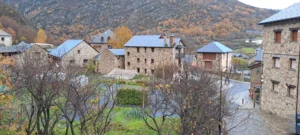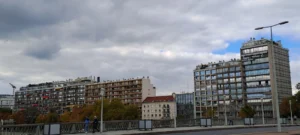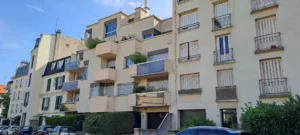· To increase the public housing stock, the Catalan Land Institute (INCASÒL) will allocate the deposits it holds to the construction of public rental housing, and the circumstances in which the Administration can exercise the right of first refusal and redemption will be expanded.
· All homes acquired with public funds will be permanently classified as officially protected housing to ensure the growth of the public housing stock.
· The construction of publicly protected housing will require only a basic licence accompanied by a basic project, in order to shorten the time until the keys are handed over to families.
The Executive Council held on 25 February 2025 has approved a DECREE-LAW that modifies several legislative texts and repeals another, with the joint objective of streamlining the construction of protected housing, expanding the stock of affordable housing in Catalonia, and ensuring that this classification becomes permanent.
The Decree-Law must be ratified by Parliament within one month.
The approved Decree-Law introduces modifications to Law 18/2007 on the right to housing; Decree-Law 1/2015 on extraordinary and urgent measures for the mobilisation of homes from foreclosure processes; Decree-Law 17/2019 on urgent measures to improve access to housing; Law 11/2022 on urban, environmental and social improvement of neighbourhoods and towns (the new Neighbourhoods Law), the consolidated text of the Urban Planning Law, and other regulatory provisions.
Furthermore, it repeals Law 3/2009 on the regularisation and improvement of urban developments with planning deficiencies.
The main changes introduced in these regulations are as follows:
-
In the area of housing
· The scope in which the Administration can exercise the right of first refusal and redemption is expanded, allowing the acquisition of flats from large landlords in municipalities declared as areas of tight residential market, with the aim of increasing the public housing stock.
· All homes acquired through the right of first refusal and redemption will be permanently classified as officially protected housing. In this way, the Administration ensures that the public housing stock will always be growing.
· Individuals registered in the Register of Applicants for Officially Protected Housing will have fewer administrative procedures to complete and will be able to register for specific housing developments.
· A serious infringement is incorporated into the Housing Rights Law in cases of refusal to provide data to the Administration regarding the register of vacant homes or occupied homes.
· The operation of the Register of Large Housing Owners is ensured, requiring mandatory registration and the communication of the number of properties owned.
· A single standardised module for rental and sale prices of officially protected housing across Catalonia is approved. The developer will be assured that the rental price will be
€10.65 per square metre and will be able to operate the development for 75 years. After this period, both the land and the building itself will become public property.
· The Neighbourhoods Law may begin to be implemented without the need to approve the corresponding regulatory framework.
-
In the area of urban planning
· The construction of publicly protected housing may begin with a prior basic licence accompanied by a basic project. Once construction has commenced, the executive project— a much more detailed and complex document— must be submitted, specifying the exact details of the construction. This will speed up the process.
· To encourage the construction of publicly protected housing, only non-profit social developers will be permitted to reduce the transfer of urban development benefits to the Administration by half.
· Urban developments built on non-developable land (typically between 1956 and 1981) must be regulated through the processing of special urban development plans. These plans will determine the basic services that each development must have (lighting, sewage, etc.), which will be financed by the homeowners. It will not be necessary to provide for the transfer of public land to the authorities if the development has 50% or more of its area consolidated.
· The obligation is reinforced for the owner of an agricultural holding residing in its associated dwelling, in cases where a descendant wishes to establish or repurpose a construction on the holding for residential use.
· The publicity and public participation in urban planning processes are simplified, ensuring that all municipalities facilitate online consultation of documentation.
· The conversion of developable land into building plots (i.e., land ready for construction) is expedited.
· The consortia formed by INCASÒL and local councils to develop Strategic Residential Areas (ARE) will be replaced by the signing of urban planning agreements with the same purpose.
· The possibility of installing renewable energy facilities in urban land plots is expanded, with a maximum height of 2.2 metres and a maximum occupation of 50% of the non-developable surface area.



